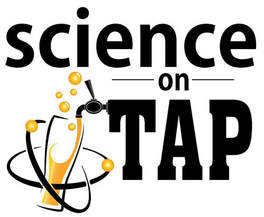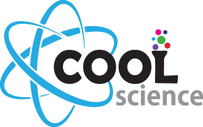
Join Cool Science for Science on Tap every 2nd Monday of the month. Due to COVID-19 restrictions we are currently going virtual using Zoom video conferencing. [Normally we meet at Jack Quinn’s in downtown Colorado Springs. Presenters begin at 6:30 pm with food and drink available beginning at 6:00 pm]. A wide variety of fascinating topics are presented by local scientists for informal discussion, and the relaxed atmosphere encourages anyone and everyone to come explore the latest ideas in science and technology. From practical to theoretical, the presentations and group interactions provide a fun and interesting way to gain an understanding of the world around us.
Join Cool Science for Science on Tap every 2nd Monday of the month. Due to COVID-19 restrictions we are currently going virtual using Zoom video conferencing. [Normally we meet at Jack Quinn’s in downtown Colorado Springs. Presenters begin at 6:30 pm with food and drink available beginning at 6:00 pm]. A wide variety of fascinating topics are presented by local scientists for informal discussion, and the relaxed atmosphere encourages anyone and everyone to come explore the latest ideas in science and technology. From practical to theoretical, the presentations and group interactions provide a fun and interesting way to gain an understanding of the world around us.
*** You can watch this and previous virtual Science on Taps on Facebook Live ***
(no RSVP or link needed)
(no RSVP or link needed)
Next up: Monday, February 8, 2021 at 6:30 pm MST (~60 minutes)
Speaker: Dr. Greg Facas, National Renewable Energy Laboratory (NREL)
Title: "Revealing the Chemistry Behind the Breakdown of Plant Biomass towards Renewable Fuels"
Summary:
One of the keys to combating global climate change will be identifying a replacement to petroleum as a renewable feedstock for the production of fuels and chemicals. Lignocellulosic biomass or non-edible plant materials (woods, grasses, corn stover etc.) has considerable potential to be this renewable feedstock. This talk will briefly cover the history of biomass as a renewable source of energy, some of the potential uses & technologies currently being developed and the challenges facing development of these technologies. One of the more popular processes will be introduced - pyrolysis, a high temperature process (~1000F) where biomass is rapidly broken down in just a couple of seconds to produce a liquid oil. However, the underlying chemistry describing this process is unknown so some of the most recent research in the field that attempts to elucidate this chemistry will also be discussed.
One of the keys to combating global climate change will be identifying a replacement to petroleum as a renewable feedstock for the production of fuels and chemicals. Lignocellulosic biomass or non-edible plant materials (woods, grasses, corn stover etc.) has considerable potential to be this renewable feedstock. This talk will briefly cover the history of biomass as a renewable source of energy, some of the potential uses & technologies currently being developed and the challenges facing development of these technologies. One of the more popular processes will be introduced - pyrolysis, a high temperature process (~1000F) where biomass is rapidly broken down in just a couple of seconds to produce a liquid oil. However, the underlying chemistry describing this process is unknown so some of the most recent research in the field that attempts to elucidate this chemistry will also be discussed.
Dr. Facas is currently a postdoctoral researcher at the National Renewable Energy Laboratory in Golden, Colorado, where he is studying methods to improve the economic potential of biomass biorefineries. He has earned degrees in chemical engineering from University of Minnesota (Ph.D. 2020) and the University of Delaware (B. Eng. 2015).
Use the forms below to get the Zoom link for the next Virtual Science on Tap (so you can comment or ask questions live), or to be added to our mailing list to let you know about upcoming events.
|
|
Note: We usually send the Zoom link within 24 hours. If you don't receive it check your junk folder or you can watch on Facebook Live (no link needed)
|








